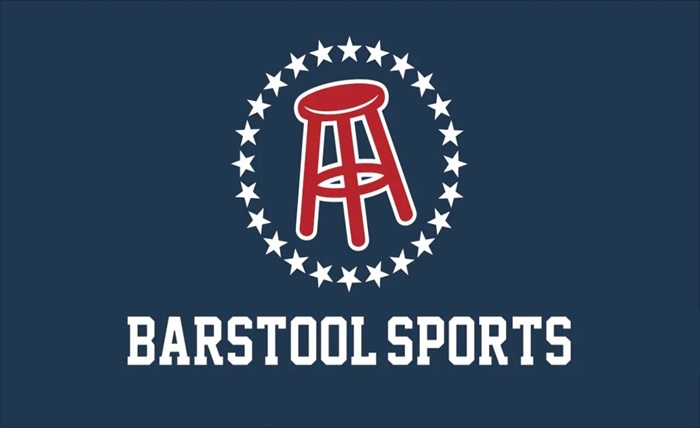Barstool Sports: Revolutionizing Digital Media and Sports Culture

Barstool Sports has become a household name in digital media, blending sports, entertainment, and pop culture to create an engaging and often controversial platform. Whether you’re a die-hard sports fan or simply looking for the latest viral trends, Barstool Sports has something for everyone. In this post, we will explore how Barstool Sports has managed to build a massive following and impact the sports media landscape.
The Origins of Barstool Sports
Barstool Sports was founded in 2003 by Dave Portnoy as a free print publication in Boston. Originally focused on gambling and fantasy sports, Barstool Sports has since evolved into a multi-platform digital empire. With the internet boom, Barstool Sports quickly shifted its focus to online content, leveraging social media to expand its reach.
Barstool Sports’ Content Strategy
Barstool Sports thrives on delivering content that resonates with its audience. From sports blogs to viral videos, Barstool Sports taps into current events and fan interests. The company covers a wide range of topics, including sports analysis, pop culture, and humorous takes on daily news, which is what makes Barstool Sports a go-to source for fans.
Barstool Sports’ Podcasting Boom
Podcasting has been a key driver of growth for Barstool Sports. With podcasts like Pardon My Take and Call Her Daddy under its umbrella, Barstool Sports dominates the podcasting space. The diverse range of shows keeps listeners engaged on topics such as sports, relationships, and lifestyle trends. Barstool Sports has truly capitalized on this growing medium.
The Role of Dave Portnoy in Barstool Sports
Dave Portnoy, the founder of Barstool Sports, plays a significant role in the brand’s identity. Known for his outspoken personality and willingness to address controversies head-on, Portnoy has become the face of Barstool Sports. His dedication to the platform and commitment to unfiltered content has garnered both fans and critics.
Barstool Sports and Controversy
Barstool Sports has never shied away from controversy, which is part of its brand appeal. Over the years, the company has faced criticism for its edgy content, particularly regarding how it approaches sensitive topics. Despite this, Barstool Sports continues to thrive by embracing its raw, unapologetic voice, which resonates with its core audience.
Barstool Sports and Social Media Dominance
Social media is the backbone of Barstool Sports’ success. With millions of followers across platforms like Instagram, Twitter, and TikTok, Barstool Sports effectively uses memes, short videos, and fan interactions to create viral content. The company’s ability to stay relevant on social media sets it apart from traditional sports media outlets.
Barstool Sports’ Influence on Sports Betting
In recent years, Barstool Sports has made significant moves in the sports betting industry. The launch of the Barstool Sportsbook app marked a new chapter for the company, allowing fans to bet on their favorite sports directly through the Barstool Sports platform. This venture has positioned Barstool Sports as a leader in the emerging sports betting space.
Barstool Sports and Its Expanding Brand
What started as a small Boston-based sports paper has now evolved into a media empire. Beyond sports and betting, Barstool Sports has expanded into merchandise, live events, and charity initiatives. Barstool Sports merchandise, featuring its iconic logo and catchphrases, is popular among fans, and the company’s charity initiatives, like the Barstool Fund, have raised millions for small businesses.
The Future of Barstool Sports
As Barstool Sports continues to grow, the company shows no signs of slowing down. With a loyal fan base, expanding media channels, and a strong presence in sports betting, Barstool Sports is well-positioned for future success. The brand’s ability to innovate and adapt to changing media landscapes will be crucial in maintaining its dominance.
Conclusion
Barstool Sports has revolutionized the way people consume sports and entertainment content. Through its unique blend of humor, controversy, and fan engagement, Barstool Sports has carved out a significant niche in the digital media world. Whether it’s through podcasts, social media, or sports betting, Barstool Sports continues to push the boundaries of what a media company can be. Its impact on both sports and pop culture is undeniable, and its influence will likely continue to grow.
FAQs
1. What is Barstool Sports?
Barstool Sports is a digital media company that focuses on sports, entertainment, and pop culture. Founded in 2003 by Dave Portnoy, the platform has grown into a multi-faceted media empire with a strong presence in podcasting, social media, and sports betting.
2. Who is the founder of Barstool Sports?
Barstool Sports was founded by Dave Portnoy in 2003. Initially a print publication, the company has expanded into digital media, podcasting, and sports betting.
3. Why is Barstool Sports controversial?
Barstool Sports has faced controversy for its edgy content and unapologetic style. The platform often addresses sensitive topics with humor, which some audiences find offensive, while others appreciate its raw and unfiltered nature.
4. How does Barstool Sports make money?
Barstool Sports generates revenue through advertising, sponsorships, merchandise sales, and sports betting. Its podcasts and social media platforms also contribute significantly to its income.
5. What is the Barstool Sportsbook?
The Barstool Sportsbook is a sports betting app launched by Barstool Sports. It allows users to place bets on various sports directly through the app, further expanding Barstool Sports’ influence in the sports betting industry.





